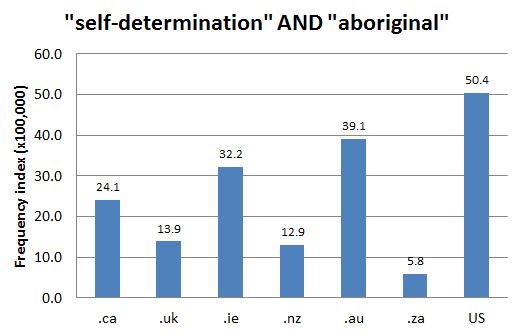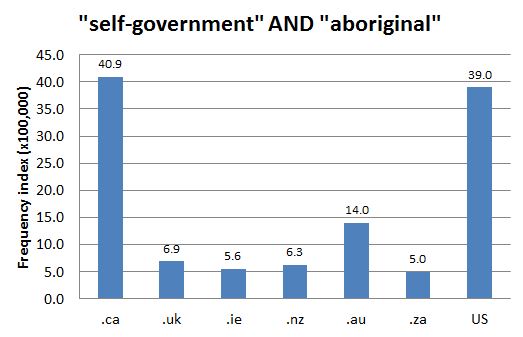DCHP-2
self-determination DCHP-2 (July 2016)
n. — Aboriginal, especially First Nations
a right and practice of Aboriginal peoples to determine their own political, economic, social and territorial future.
Type: 4. Culturally Significant — Defined in Article (3) of the United Nations Declaration on the Rights of Indigenous Peoples, self-determination is a right possessed by indigenous peoples to autonomously determine their own political status, as well as "freely pursue their economic, social and cultural development" (see AFN: 15). The term's international currency is reflected in Chart 1. The right to self-determination is based on the principle that Aboriginal peoples had signed treaties and made agreements concerning land and resources as autonomous nations on an equal footing with colonial powers (see the 2014 quotation); thus, this right is seen as being reaffirmed, not granted. As listed in the Charter of the Assembly of First Nations, self-determination is given by the/a "Creator" alongside the right to self-government (see AFN "Charter of the Assembly of First Nations"). Dalton (2006: 12) notes that although self-determination is the common international legal term (see also Chart 1), the term "self-government" is more frequent in Canada, as it is the most common "expression of the right to self-determination". The latter assessment is confirmed in Chart 2, where the US and Canada are neck and neck.See also: enfranchised sovereignty (meaning 2) self-government
References:
- AFN "Pursuing First Nation Self-Determination: Realizing Our Rights and Responsibilities" Accessed 5 May 2014
- AFN "Charter of the Assembly of First Nations" Accessed 5 May 2014
- Dalton (2006)
Images:
Chart 1: Internet Domain Search, 6 May 2014
Chart 2: Internet Domain Search, 7 May 2014

